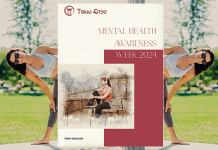The quest for personal well-being and life balance often confronts a formidable obstacle—fear. From career choices to personal relationships, the shadows of fear can cloud our judgment, hinder our progress, and compromise our mental health. This post explores how fear affects our lives and provides practical strategies for transforming fear into a stepping stone towards empowerment and well-being.
Fear manifests as a complex emotional and psychological response to perceived threats and uncertainties. It can stem from a variety of sources such as economic instability, health crises, personal safety concerns, and the fast pace of technological and social change. Fear affects individuals and communities in significant and varied ways, influencing decision-making, behaviour, and interactions daily.
How Fear Affects Day-to-Day Lives
- Mental Health affects: Fear can lead to heightened levels of stress, anxiety, and depression. Chronic fear is particularly damaging as it can disrupt sleep, harm concentration, and contribute to long-term mental health issues.
- Decision Making: Fear can cause people to make conservative or defensive decisions to avoid perceived risks. This may mean choosing safety or familiarity over potentially more rewarding opportunities, thus limiting personal and professional growth.
- Social Interactions: Fear can influence social dynamics by fostering suspicion or hostility between different groups. It can also lead people to withdraw socially and avoid engaging with their community, which diminishes social cohesion and support networks.
- Workplace Effects: In professional settings, fear can affect productivity and innovation. A fear-driven workplace might see decreased risk-taking and creativity, which are crucial for development and adaptation in a competitive environment.
- Physical Health: The stress from fear can also have direct physical effects, such as increased heart rate, high blood pressure, and a weakened immune system, making individuals more susceptible to illnesses.
- Cultural and Political Impact: Fear can be a powerful tool in politics and media, used to influence public opinion and policy decisions. This can lead to increased polarisation and conflict within societies.
By recognising the sources and effects of fear, individuals and societies can better address these challenges through education, open communication, and supportive interventions, fostering a more resilient and balanced approach to modern life’s complexities.
Understanding the Impact of Fear
Fear, in its many forms, can be both a protective instinct and a paralysing barrier. In the modern context, where change is constant and uncertainty is a given, fear of the unknown and fear of failure are prevalent. These fears can lead to stress, anxiety, and a hesitation to pursue new opportunities or embrace necessary changes, severely affecting our life balance and overall well-being.
Strategies to Overcome Fear
- Acknowledge and Name Your Fears: The first step in conquering fear is to acknowledge its presence and understand its roots. Whether it’s fear of failure, rejection, or the unknown, naming it can diminish its power.
- Educate Yourself: Fear often stems from the unknown. By seeking knowledge about what frightens you, whether it’s a new job role or a personal endeavour, you can reduce uncertainty and build confidence.
- Develop Resilience Through Small Steps: Resilience can be built by taking gradual steps and setting manageable goals. This approach helps in creating a series of successful outcomes that boost confidence and reduce fear.
- Use Mindfulness Techniques: Practices such as meditation, deep breathing, and yoga can help manage the physiological and psychological effects of fear. These techniques encourage a state of mindfulness that fosters calm and clarity in decision-making.
- Seek Support: No one has to face their fears alone. Talking to friends, family, or professionals can provide new perspectives and reinforce a support network, crucial for overcoming personal challenges.
- Visualise Success: Instead of focusing on what could go wrong, visualise what success looks like for you. This positive thinking can shift your mindset from fear to empowerment.
Empowering Yourself in the Face of Fear
The journey to empowerment involves turning challenges into opportunities. By embracing and overcoming your fears, you not only achieve a better sense of well-being and life balance but also set a foundation for continual personal growth and fulfilment.
While fear is a natural and sometimes rational response to the challenges of modern life, it need not define or derail our aspirations for a balanced and fulfilling life. By understanding, managing, and confronting our fears, we can unlock our potential and empower ourselves to not just survive, but thrive.
Next Steps

|
Life-Empowerment: Understanding and Harnessing Your Mind for SuccessEmbark on a transformative journey with Torri Enso Life-Empowerment course, a meticulously designed program that dives deep into the realms of your mind to unlock unparalleled success and personal growth. This course stands as an essential beacon for anyone eager to understand the intricate dynamics of their conscious and unconscious minds and leverage this knowledge to manifest their aspirations into reality. “By enrolling in the Life-Empowerment course, you’re not just signing up for another program; you’re stepping into a journey of self-discovery and empowerment. With each module, you’ll unlock additional dimensions of your mind, enabling you to live a life marked by purpose, success, and contentment. Your journey to a better self begins here. |






